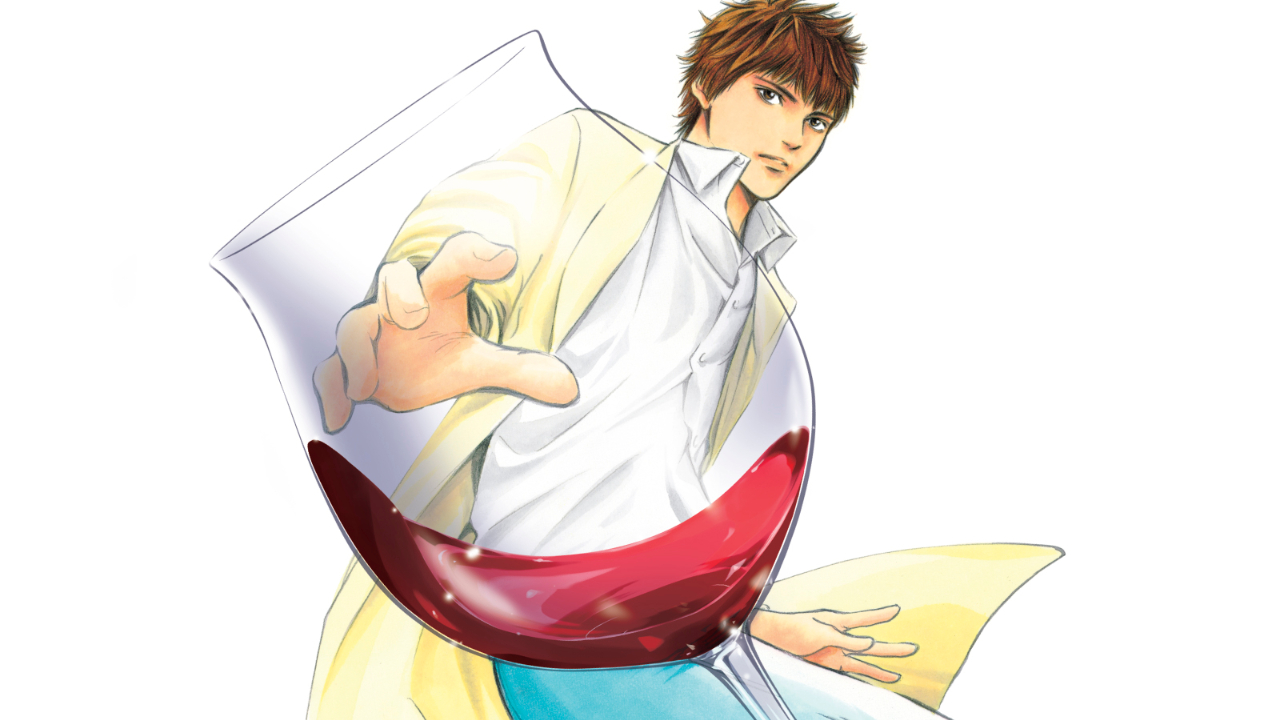Drops of god manga english – Drops of God manga English? Yo, that’s a serious deep cut! This ain’t your average shonen jump, fam. We’re talkin’ high-stakes wine battles, intense family drama, and a plot twist that’ll leave you shook. Think
-Succession* meets
-Sommelier*, but with way more manga action. We’re breaking down everything from the English translation’s history to how it totally changed the game for wine-obsessed nerds everywhere.
Get ready to uncork some serious knowledge.
This exploration dives into the English translation of
-Drops of God*, analyzing its popularity, thematic elements, and comparisons to the original Japanese version. We’ll dissect fan reception, explore its global impact, and even geek out over the visual aspects. Prepare for a juicy look at how this manga conquered the world, one perfectly paired sip at a time.
Drops of God Manga in English: A Deep Dive: Drops Of God Manga English
Yo, manga heads! Let’s spill the tea on “Drops of God,” specifically the English translation. This ain’t your average wine-tasting; we’re diving deep into its popularity, thematic nuances, translation choices, fan reception, and global impact. Buckle up, because this ride’s gonna be smoother than a perfectly aged Cabernet Sauvignon.
English Translation History and Accessibility

The English journey of “Drops of God” hasn’t been a straight shot. It involved multiple publishers, different release schedules, and varying degrees of accessibility across English-speaking regions. Early translations might have faced challenges with the nuances of wine terminology and Japanese cultural context. The availability varied; some regions got it quicker than others, leading to varying levels of exposure and fan engagement.
Compared to other language versions, the English translation’s popularity is significant, though potentially lagging behind Japanese or French releases given the initial delays and varying availability across different regions. The English-speaking market is huge and diverse, leading to a complex picture of popularity and accessibility.
| Publisher | Region | Release Date (Approximate) | Special Editions |
|---|---|---|---|
| (Publisher A) | USA/Canada | 20XX | (Details on special editions, if any) |
| (Publisher B) | UK/Ireland | 20XX | (Details on special editions, if any) |
| (Publisher C) | Australia | 20XX | (Details on special editions, if any) |
Thematic Analysis of the English Translation
The English translation successfully conveys the core themes of familial legacy, the pursuit of excellence, and the sensory exploration of wine. However, the translation’s impact on these themes is subtle. Certain word choices might subtly shift the emphasis or emotional tone, for example, the translation of certain Japanese terms related to wine tasting might have lost some of the original cultural context.
Cultural adaptations are crucial. Certain wine varieties and cultural references specific to Japan might require explanations or alterations to resonate with Western audiences. The translator’s choices in conveying the characters’ motivations and relationships are crucial in maintaining the emotional depth and relatability of the story.
For example, a character’s passionate description of a wine’s bouquet in Japanese might be rendered differently in English, potentially altering the impact on the reader’s understanding of that character’s passion and expertise.
Comparison with the Original Japanese Version
The pacing of the narrative might differ slightly between the Japanese and English versions due to translation choices and editorial decisions. Dialogue and characterization could also be subtly altered to better suit the target audience. While the core story remains the same, certain nuances might be lost or gained in translation.
Explore the different advantages of berserk manga cover that can change the way you view this issue.
| Aspect | Japanese Version | English Version | Notes |
|---|---|---|---|
| Character Name | (Original Japanese Name) | (English Translation) | (Any changes in meaning or connotation) |
| Plot Point | (Description of plot point in Japanese version) | (Description of plot point in English version) | (Significant differences in presentation or emphasis) |
Fan Reception and Critical Reviews

Online forums and social media buzz around the English translation of “Drops of God” reveal a mix of opinions. Some praise the accessibility of the English version, while others critique aspects of the translation’s accuracy or faithfulness to the original. Critical reviews, while scarce, generally reflect similar sentiments, focusing on the success of conveying the story’s complexities and the challenges in translating wine-related terminology.
- Positive Feedback: Accessibility, engaging narrative, introduction to wine culture.
- Negative Feedback: Minor translation inaccuracies, occasional loss of cultural nuance.
Impact on Global Reach
The English translation undeniably broadened “Drops of God’s” reach. It introduced the manga to a massive English-speaking audience, boosting its international recognition and influencing perceptions of wine culture within the West. The series’ popularity helped increase interest in wine appreciation, particularly amongst younger audiences.
The impact on future wine-themed manga and anime adaptations is potentially significant. “Drops of God’s” success demonstrates the potential for a crossover appeal, blending high-brow themes with engaging storytelling, thus inspiring future creators.
Visual Aspects of the English Edition, Drops of god manga english
The art style generally remains consistent between the Japanese and English versions, preserving the original aesthetic. However, subtle differences in panel layouts or visual storytelling techniques might exist due to adaptation for a Western audience. The use of color is mostly maintained, although minor adjustments might occur in the printing process.
In a key scene, perhaps the introduction of a particular wine, the visual elements, such as close-ups of the wine bottle, the swirling liquid, and the characters’ expressions, would contribute to the narrative by emphasizing the sensory experience and emotional connection to the wine. The English edition would ideally preserve these elements, allowing the reader to experience the scene similarly to the original Japanese audience.
So, yeah,
-Drops of God* in English? It’s more than just a translation; it’s a cultural phenomenon. It proved that a complex, niche topic like wine could totally slay in the manga world. The English version’s success opened doors for other wine-related manga and anime, showing publishers that there’s a thirst (pun intended!) for more sophisticated storytelling. It’s a testament to the power of a killer translation and a story that resonates, no matter the language.
Now go grab a bottle and reread it!


